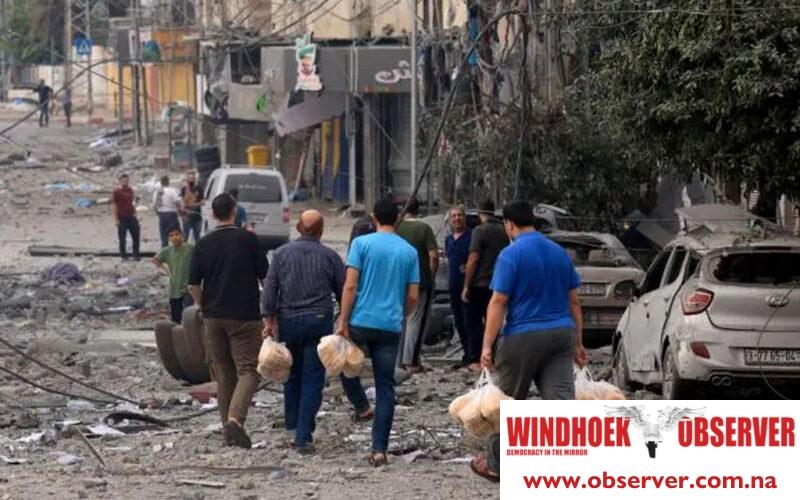Niël Terlanché
Namibian legal experts have indicated that the International Court of Justice (ICJ) might order Israel to comply with provisional measures in a matter of weeks regarding the alleged genocide in Gaza.
However, they stressed that more countries need to support Palestine and stand with South Africa for Israel to comply.
South Africa has brought a case against Israel at the ICJ, alleging acts of genocide in the Gaza Strip, which contravenes the 1948 Genocide Convention.
The allegations include mass killings, serious mental and bodily harm, forced displacement, destruction of healthcare systems, and the prevention of births in Gaza.
South Africa’s legal team, comprising John Dugard, Adila Hassim, and Tembeka Ngcukaitobi, among others, argues that Israel’s actions intend to destroy a substantial part of the Palestinian national, racial, and ethnical group.
As the highest United Nations legal body, the ICJ adjudicates issues between member states.
Local experts concur that while the final determination of South Africa’s application against Israel might take years, the ICJ could impose immediate provisional measures as demanded by South Africa.
These provisional measures, which are typically decided upon quickly after hearings, may include limiting military operations, avoiding the use of explosive weapons in populated areas, and preventing the forced displacement of Palestinians.
Norman Tjombe, a prominent Namibian human rights lawyer, stressed that South Africa must substantiate the allegations of violations under the United Nations Genocide Convention.
He noted that both the UN General Assembly and the Security Council should collaborate to ensure compliance with the court’s orders.
Besides Namibia, countries like Malaysia, Turkey, Jordan, Bolivia, the Maldives, Pakistan, the Arab League, Colombia, and Brazil, along with various advocacy groups and civil society organizations, have expressed support for South Africa’s case.
This case at the ICJ is regarded as historic, with potentially profound implications for international law and human rights.
Israel has denied the accusations of genocide, labelling them baseless. Israeli officials, including Prime Minister Benjamin Netanyahu, have dismissed these accusations as hypocrisy and falsehoods, claiming that their actions in Gaza are defensive measures against terrorism.
This case has reiterated the complexity and contentious nature of international law and diplomacy, particularly in matters as serious as genocide allegations.
Local legal experts agreed that the outcome of this case could establish a significant precedent for future international legal disputes and the interpretation of the Genocide Convention.




